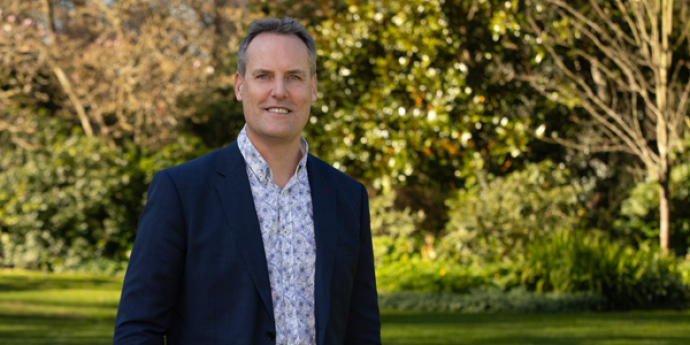Geneva-bound director sings CDC praises
Marc Rivers shares how he found the Institute of Directors Company Directors’ Course a valuable experience.

Christchurch-based Board Matters host Steven Moe MInstD is a partner at Parry Field. He describes his governance roles as diverse and largely sits on boards of purpose-led organisations. He is chair of housing investor Community Finance, sits on the international and Asia-Pacific boards of the Global Alliance of Impact Lawyers, the External Reporting Advisory Panel to the External Reporting Board (XRB), the Whanau Whenua Whare Trust, the Christian Savings board, the Seeds Foundation and the Parry Field Charitable Foundation.
This week he shares insights into a book that explores the importance of vulnerability.
I’ve been learning a lot from Dare to Lead: Brave Work. Tough Conversations. Whole Hearts, by Brené Brown.
Brené became famous due to a Ted Talk on the importance of vulnerability, which featured honest stories, and the book is in the same style – quite conversational with stories and the practical implications of principles.
As an example: “…if you’re going to dare greatly, you’re going to get your ass kicked at some point. If you choose courage, you will absolutely know failures, disappointment, setbacks, even heartbreak. That’s why we call it courage. That’s why it’s so rare.”
In the past, a business or governance book would have been from the mindset of leaders having authority and power with the bottom line being a Milton Friedman-inspired philosophy of shareholder primacy and profits first.
This book represents a new way of conceiving leadership and governance in business, which places people at the centre and encourages leaders to be clear about who they are first – being vulnerable and curious as the starting point in order to inspire others.
She has a section which moves from talking about being open to vulnerability, empathy and curiosity to living into our values. Here she suggests that you need to identify two core values which are then the foundation for all your activity and work.
I found that was helpful to do and came up with three: empowering positive change, courage and creativity.
Having the courage to stand for what makes me and my perspective unique, so speaking up in board contexts when it might be tempting to instead say nothing.
I enjoy interviewing people, as the host for the IoD’s Board Matters podcast and the Seeds podcast. The thing I’ve learned, having talked with hundreds of people now, is that everyone I admire is a lifelong learner – they do not settle when they’ve had ‘success’. They remain curious and, if anything, they realise how much they still need to know. So I’m proactively adopting the same attitude and am always buying books and reading many at the same time.
I cannot walk out of a second-hand bookstore without at least one book!
While it would help those at the start as well, I actually think senior governance leaders would be most challenged by the principles that are set out in it [see Steven’s further thoughts in this review of the book].
I like to visit other worlds or ways of thinking, so a good sci-fi or fantasy that can present an alternative future.
Three authors who do that well are Kim Stanley Robinson (The Years of Rice and Salt), Brandon Sanderson (The Way of Kings) and James Islington (The Shadow of What Was Lost).
I’ve been reflecting a lot about the future and how we can shape what it becomes. I like to question things like, why we do what is tradition – such as moving and seconding motions (discussed in this article I co-wrote for the IoD here) – and also the future of governance when it comes to nature as a legal entity.
That it is permissible to have fun while being involved in governance. Too often we conceive of board positions as tapping our energy when, actually, there is learning and growth that can come. I like going away from a meeting feeling energised by the group and what can be achieved. To go fast – go alone. To go far – go together.
More of a forward focus – too often we get stuck discussing the last event or the last quarterly result when we should be thinking about what is coming in 10, 20 or 100 years.
If there is a book on your radar that you’d like to share, send an email to: Sonia.yee@iod.org.nz